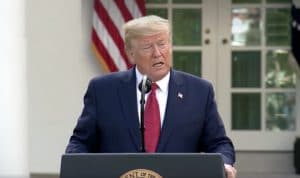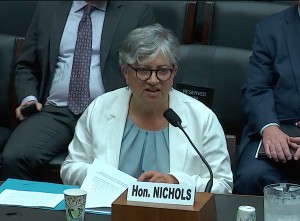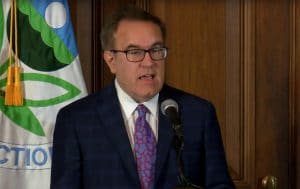
Twenty-three states, the District of Columbia and four cities filed suit against the Trump administration about the newly finalized fuel efficiency rules.
More than two dozen states and cities filed suit against the Trump administration’s move in March to roll back fuel-efficiency mandates set by the Obama administration.
The process of reviewing and amending the previous rules has sparked feuding between many states and the current administration and at least one other lawsuit by a group of environmental organizations while automakers appear to be taking sides.
The new mandates requiring 1.5% annual improvements in vehicle fuel efficiency through 2026, which are lower than the 5% put in place by former President Barack Obama. The Trump administration had pondered simply freezing the current requirements, keeping the requirements through 2026.
(Trump administration officially rolls back Obama-era fuel economy rules.)
The suit was filed by 23 states, led by California as well as the District of Columbia and New York City, Denver, San Francisco and Los Angeles. Prior to this, a collection of 12 environmental groups, including Environmental Defense Fund, Sierra Club and Union of Concerned Scientists also sued over the rules.

CARB’s Mary Nichols said the administration “used questionable science, faulty logic and ludicrous assumptions” in its determination of the new rules.
California and the California Air Resources Board have been squabbling with Trump and the Environmental Protection Agency for nearly two years about fuel economy and emissions requirements. California has a special exemption allowing it to set its own standards due to pollution problems in the state. Trump pulled the exemption and the state sued. It’s also led the current filing.
CARB Chair Mary Nichols said the administration “used questionable science, faulty logic and ludicrous assumptions to justify what they wanted from the start: to gut and rewrite the single most important air regulation of the past decade.”
However, she’s not alone in the effort and her criticism of the easier standards, which the administration has claimed will make America’s roads safer while cutting costs to automakers.
(White House set to reveal final fuel economy rollback.)
Michigan Attorney General Dana Nessel described the administration’s easier requirements a “gift to the fossil fuel industry” that would harm the state by cutting automotive-related employment by 4%.

EPA Admin Andrew Wheeler has contended the easier fuel efficiency requirements will make roads safer and save money.
EPA officials declined comment on the suit, Reuters reported, and claimed the new mandate as a “sensible, single national program that strikes the right regulatory balance, protects our environment, and sets reasonable targets for the auto industry.”
While initially siding with the administration’s efforts to ease the rules, automakers have split up into two groups: those with Trump and those looking for a deal.
Reuters reported that a trade group representing General Motors Co., Fiat Chrysler Automobiles, Toyota Motor Corp and others said it would review the lawsuit. Last week, the group sided with the Trump administration plan and opposed a legal challenge to further weaken the requirements, while other automakers including Ford did not.
(EPA, NHTSA submit final fuel economy proposals to Trump.)
Those looking for a deal found one last year. Ford, Honda, BMW and Volkswagen inked a deal with California to meet a standard somewhere between the Obama and Trump requirements. The new rules require the U.S. vehicle fleet to average 40.4 miles per gallon rather than 46.7 under the Obama rules finalized in 2012.
